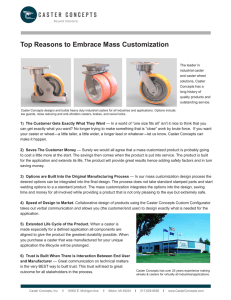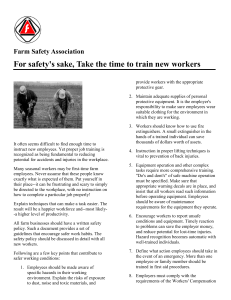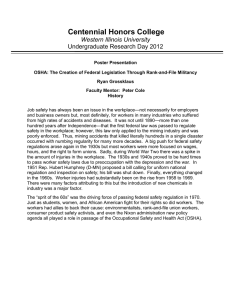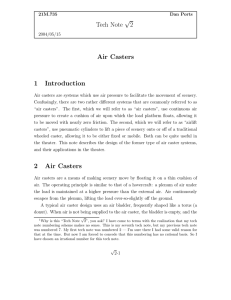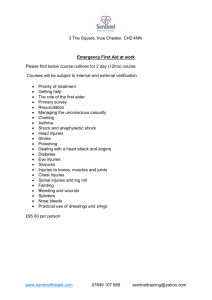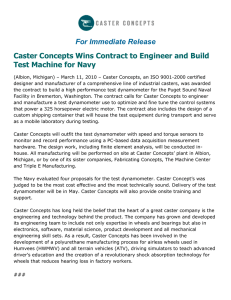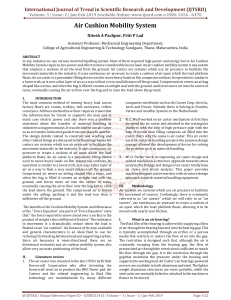2014 ARTICLE SERIES
advertisement
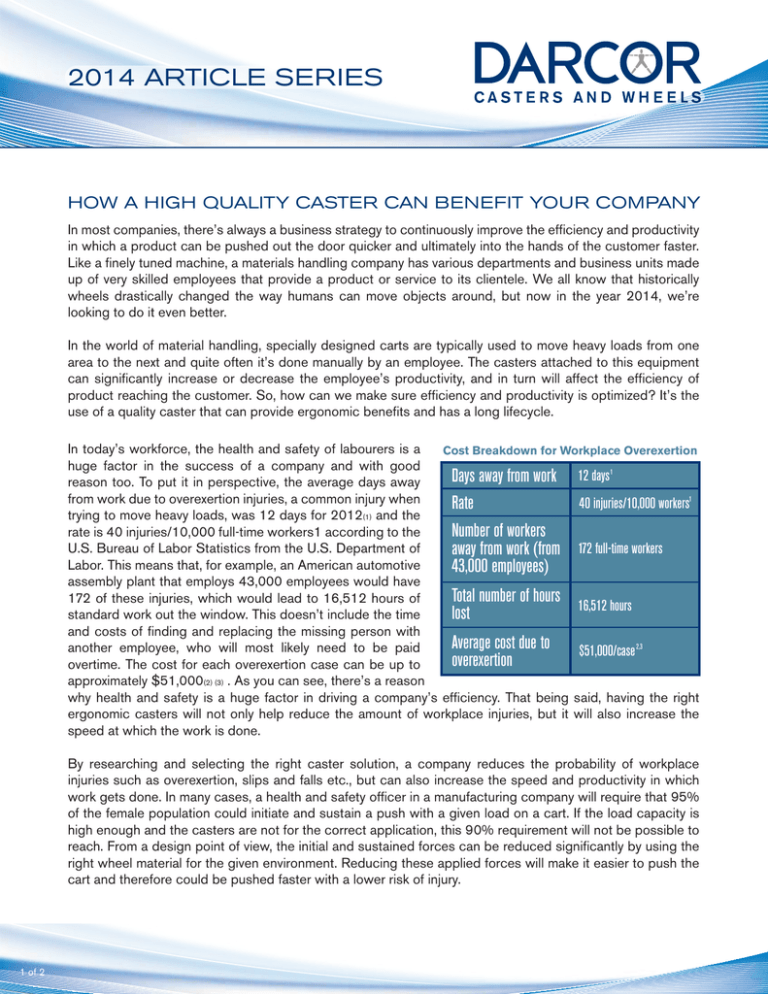
2014 ARTICLE SERIES HOW A HIGH QUALITY CASTER CAN BENEFIT YOUR COMPANY In most companies, there’s always a business strategy to continuously improve the efficiency and productivity in which a product can be pushed out the door quicker and ultimately into the hands of the customer faster. Like a finely tuned machine, a materials handling company has various departments and business units made up of very skilled employees that provide a product or service to its clientele. We all know that historically wheels drastically changed the way humans can move objects around, but now in the year 2014, we’re looking to do it even better. In the world of material handling, specially designed carts are typically used to move heavy loads from one area to the next and quite often it’s done manually by an employee. The casters attached to this equipment can significantly increase or decrease the employee’s productivity, and in turn will affect the efficiency of product reaching the customer. So, how can we make sure efficiency and productivity is optimized? It’s the use of a quality caster that can provide ergonomic benefits and has a long lifecycle. In today’s workforce, the health and safety of labourers is a Cost Breakdown for Workplace Overexertion huge factor in the success of a company and with good Days away from work 12 days1 reason too. To put it in perspective, the average days away from work due to overexertion injuries, a common injury when 40 injuries/10,000 workers1 Rate trying to move heavy loads, was 12 days for 2012(1) and the rate is 40 injuries/10,000 full-time workers1 according to the Number of workers U.S. Bureau of Labor Statistics from the U.S. Department of away from work (from 172 full-time workers Labor. This means that, for example, an American automotive 43,000 employees) assembly plant that employs 43,000 employees would have Total number of hours 16,512 hours 172 of these injuries, which would lead to 16,512 hours of lost standard work out the window. This doesn’t include the time and costs of finding and replacing the missing person with Average cost due to another employee, who will most likely need to be paid $51,000/case 2,3 overexertion overtime. The cost for each overexertion case can be up to approximately $51,000(2) (3) . As you can see, there’s a reason why health and safety is a huge factor in driving a company’s efficiency. That being said, having the right ergonomic casters will not only help reduce the amount of workplace injuries, but it will also increase the speed at which the work is done. By researching and selecting the right caster solution, a company reduces the probability of workplace injuries such as overexertion, slips and falls etc., but can also increase the speed and productivity in which work gets done. In many cases, a health and safety officer in a manufacturing company will require that 95% of the female population could initiate and sustain a push with a given load on a cart. If the load capacity is high enough and the casters are not for the correct application, this 90% requirement will not be possible to reach. From a design point of view, the initial and sustained forces can be reduced significantly by using the right wheel material for the given environment. Reducing these applied forces will make it easier to push the cart and therefore could be pushed faster with a lower risk of injury. 1 of 2 Finally, the last benefit of using a quality caster is the actual quality, which directly relates to the consistent performance over the years of constant use. Buying cheap casters may save company money in the short term, but once the casters are put through the paces, they can begin to degrade quite significantly. Everything from wheel material, proper bearing structure to grease caps will determine how long the caster will last and how well they will continue to perform. Using a lower end caster can end up costing more than your company may think, because once performance goes down, or the casters begin failing, then more money will be required to replace them, as well as reducing productivity due to maintenance time when carts are out of service. At the end of the day, quality casters benefit a company by increasing productivity on the floor as well as reduce common injuries in the workplace, such as overexertion. With over 80 years of experience in the industry, Darcor casters have constantly been evolving to solve these specific issues, with a proven track record in working with some of the biggest automotive, industrial and medical companies in the world, reducing their cost of ownership. For further information on this article or to discuss how your company could reduce the probability of workplace injuries and increase operational efficiency, please contact: Anton Malek Darcor Casters and Wheels Applications Engineer amalek@darcor.com 1.800.387.7206 ext.221 References: Bureau of Labour Statistics, http://www.bls.gov/iif/#tables: December, 2013. BLS News Release, http://www.bls.gov/news.release/archives/osh2_11262013.pdf: November, 2013. 2013 Liberty Mutual Workplace Safety Index, http://www.libertymutualgroup.com/omapps/ContentServer?c=cms document&pagename =LMGResearchInstitute%2Fcms_document%2FShowDoc&cid=1138365240689: 2013. Darcor Limited 7 Stafforshire Place Toronto, ON Canada M8W 1T1 2 of 2 5/7/14 1. 2. 3.
